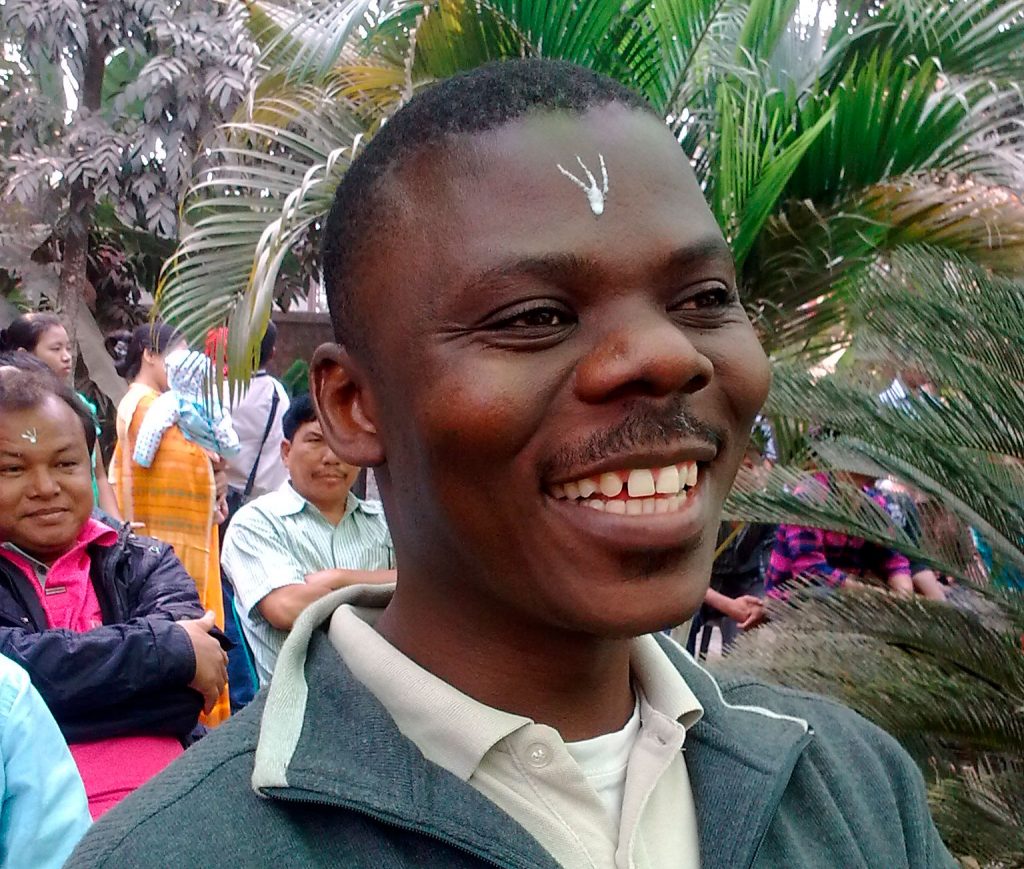
St Marceline’s Enduring Presence in the “tea gardens”
“In Giasnogor community (Bangladesh) Marcellin’s enduring presence is alive in our work in the school, in feeding poor children and in manual work”, mentions Br. Vigilio Bwalya (from Zambia), when speaking about the Marist presence in the “tea gardens” where People’s living conditions here are outrageously poor.
Brother Vigilio who works in Bangladesh since March 2008, share with us his experience of missionary work in the Giasnogor Community together with the Marist Brothers: Cesar Barba (Mexico), Marti Enrich (Spain), Eugenio Sanz (Spain). Another Bangladesh Brother, Rubel Nokrek, will join them as soon as the aviation sector opens.
___________
“This year, on the 25th of July, I turned fifty, and yet feeling overwhelmingly young. Our being chronologically advanced notwithstanding, St Marcellin’s enduring presence is kept alive by our active presence in teaching in the school, looking after hostel boys, in feeding programs and in doing manual work.
Our community, one of the visible signs of an enduring presence of St Marcellin, is surrounded by the tea garden communities with deplorable housing, meagre salaries, poor nutrition and with the unmatched illiteracy. People’s living conditions here are outrageously poor, and sadly to mention that it is not uncommon to find a single room crowded with family members of different ages. The salaries they get are miserably low; as low as 1$ pay day (Gain, 2016). With this kind of salary, they hardly have decent meals; much of them often of poor quality, lacking in protein for example. Literacy levels are not different either. Most of the tea garden workers (our workers included), are illiterate; and only a few of their children can read and write.
We found ourselves in this place mainly to help reduce malnutrition levels and to alleviate the unmatched levels of illiteracy among children through feeding programs and by opening up a secondary school in 2017. In a way, our two main apostolates are communal and school based. We did well in feeding programs, but like many Brothers in the world, we have done little in the school in ensuring Marcellin’s presence among children since the onset of Covid-19 and the eventual lockdown. However, and on the positive side, Marcellin’s enduring presence in manual work has resurfaced in most of our Brothers. As the educational and transport/aviation sectors got shut worldwide, we found ourselves stranded in the community doing most of the works that workers and students do; continuously cleaning the surroundings, planting and watering grass and flowers, digging trenches, clearing footpaths etc. I find this experience of Marcellin’s presence through manual work satisfying and with much edification.
It is the same experience I had during my visit to the Hermitage in 2016 in France. I was shown Marcellin’s bed on which I sat in contemplation, but I didn’t feel his presence there; I was also shown the golden box presumed to contain his remains and before which we had some prayers, yet I didn’t feel his presence there; I was later taken to his birthplace, but he was not there either; they even took me to the place where he was lost in the snow, but nothing happened inside me. When on a Saturday morning they asked me to go and clear outgrowing bushes along the banks of the stream, that is where I felt something inside me, his presence. I sighed peacefully and whispered to myself, as if talking to him, “So, you want us to do this too…to dirty our hands”. In Giasnogor community Marcellin’s enduring presence is alive in our work in the school, in feeding poor children and in manual work.”
Br.
Virgilio Bwalya
Zambia – Province of Southern Africa
Photo – From right: Brothers Vigilio Bwalya (Zambia), Cesar Barba (Mexico), Marti Enrich (Spain) and Eugenio Sanz (Spain) and Shumon – in front (Novice from Bangladesh).

